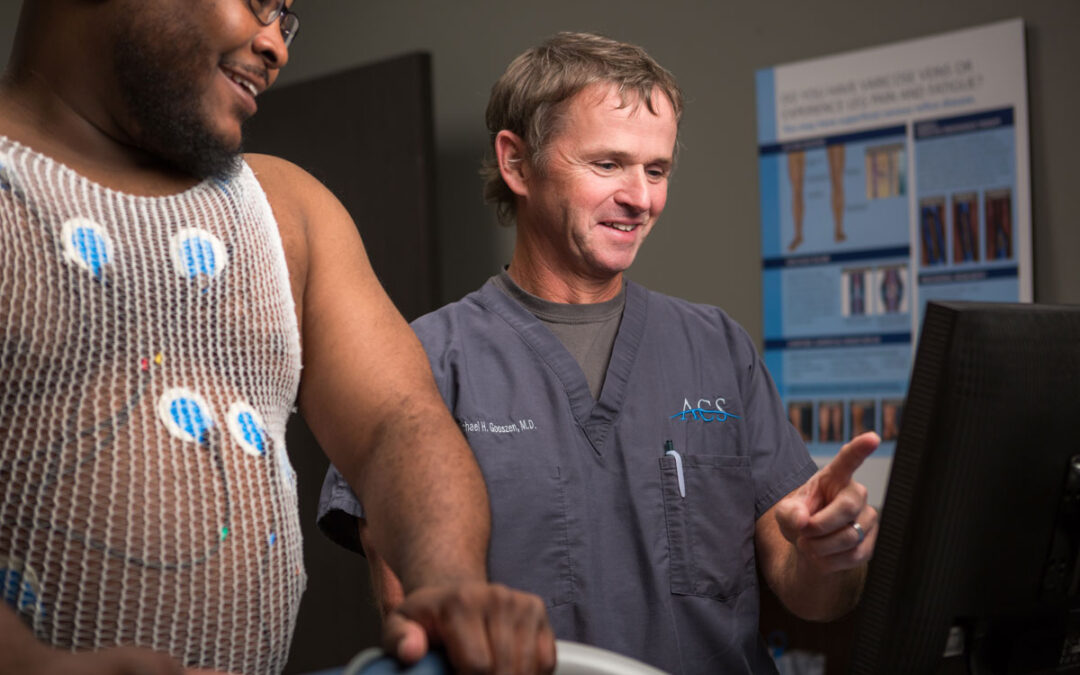When your doctor recommends a stress test, it can be difficult to not feel anxious about it. You might be unsure of what is involved, why it is being performed, what the results might show or all of the aforementioned reasons. At Advanced Cardiovascular Specialists, we perform stress tests and other types of diagnostic tests every day, so we understand the worry that can go along with it. That’s why we’ve put together this quick resource to help take some of the stress out of stress tests.
What is a stress test?
A stress test shows how well your heart handles an increased workload by measuring blood flow to the heart. Your blood flow will first be monitored while you are at rest, and then again while you exercise on a treadmill for 10 to 15 minutes. You will begin at a slow walk, and the speed and/or incline will be increased gradually. For those with mobility issues, you may be given a medication that makes your heart respond as if you were exercising instead. Breathing, heart rate, heart rhythm and blood pressure are monitored throughout the test. Following the test, your doctor will compare the results and explain what they mean for your health.
Why are stress tests needed?
Stress tests are often used to help assess your risk for a heart attack or other related conditions. They can also help diagnose causes of chest pain, shortness of breath, dizziness and lightheadedness. Stress tests can identify heart rhythm changes that patients may be experiencing during exercise. Your doctor will sometimes recommend a stress test to check the effectiveness of a procedure or treatment that you have undergone or to help create a safe exercise plan for you if you have a health condition.
Who should consider a stress test?
Although your doctor will usually tell you if a stress test is needed, you should also ask about having one if you have any of the lifestyle factors or medical concerns below.
- You smoke.
- You have a family history of heart disease.
- You have high blood pressure, high cholesterol or diabetes.
- You are overweight.
- You are experiencing chest pain.
Are there risks with having a stress test?
A stress test is safe and noninvasive. However, some patients may develop chest pain or other symptoms that prevent them from finishing the test. You will be monitored by one or more medical professionals during the test. They will stop the test if:
- You experience chest pain.
- Your blood pressure is at a concerning level.
- You have shortness of breath, or the ECG shows that you heart isn’t receiving enough oxygen.
You can also stop the test at any point if you feel unwell.
How do I prepare for a stress test?
Your doctor will provide full instructions, but general tips for preparing for a stress test include:
- Avoiding caffeine on the day of your appointment.
- Not eating or drinking prior to your appointment.
- Making sure you have discussed any medications that you are taking with your cardiologist, and taking them as directed.
The team at Advanced Cardiovascular Specialists consists of North Louisiana’s leading experts in cardiovascular care. For more information or to schedule an appointment, please call our office at (318) 798-9400.

